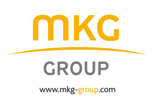Stability for Hotel Chains in Europe in 2012 | MKG Reports


Despite decline in demand, growth in average prices allowed hotel RevPAR in the European Union to remain stable in 2012 at 63.8 euros, with all hotel categories managing to remain positive, reveals Europe's largest hotel market monitoring database, HotelCompSet by MKG Hospitality.
Chain Hotel RevPAR in the EU27 remained stable in 2012, with less than 1% increase to reach 63.8 euro according to MKG Hospitality's market benchmark HotelCompSet. This was driven by growth in Average Daily Rates (ADR) across all hotel categories, whilst better performances in the economy segment was mainly influenced by the pulling weight of the UK and Germany.
"Despite the small drop in demand, absolute RevPAR value remains quite high, further attesting to Europe's appeal as hotel development market, backed by market maturity, less risky business environment and good operating results. In fact, Europe easily maintains the highest RevPAR value in the world, and all this despite the current financial and sovereign debt situation," states Director of Development, MKG Hospitality, Vanguelis Panayotis.
Unusually, hotel performances across Europe reveal inconsistency between country markets, as well as within each country's sub market – traditionally much of the continent moves as a cluster. France for instance sees demand decline in 2012, but reasonably good growth in average prices helps RevPAR remain slightly above stable.
"This is sustained predominantly by the upscale segment, namely in Paris and Cannes, fuelled by their traditional strong trade shows and events, as well as good balance with leisure. Indeed, demand for luxury and upscale products continues to be strong in France despite the economic situation in Europe," continues Panayotis.
Meanwhile, regional areas show disparities and generally continue to struggle with declining Occupancy Rate (OR) and only stable ADR. In stark contrast, the UK's performance was held up mainly by regional areas and the economy segment, as tourism authorities continued to encourage the British market to travel domestically. London did record just over 2% RevPAR growth, although this was fuelled solely by an increase in average prices as demand declined. Indeed performances were rather mundane considering it was an Olympic year.
Markets that performed particularly well include Germany, posting 5.5% RevPAR growth; Austria 7%; and Luxembourg almost 5%. All three markets had fairly even spread performance between the various segments and between main cities. "No doubt, these markets managed better results on account of their healthier business and MICE activity – domestic and European orientated – as well as of course generally better economic growth," explains Panayotis.
Meanwhile, the euro zone's peripheral countries are joined by Switzerland, the Netherlands and Belgium with declining RevPAR, unable to maintain the growth enjoyed in 2011 when performances were already quite strong. Second semester should be better economically speaking. Long-haul clientele from emerging markets such as in Asia should continue to show good growth, although this will mostly impact capital city/hub markets and the upscale segment. No doubt, the level of the Euro currency should also play a big role in determining this trend.
Regarding domestic demand in European markets, recovery will likely come in the second semester, while in 2012 the drop in demand was mostly outside key economic destination and leisure (short break) clientele.
Joëlle Renno
MKG Group
+33 (0) 1 56 56 87 95
Hospitality ON
